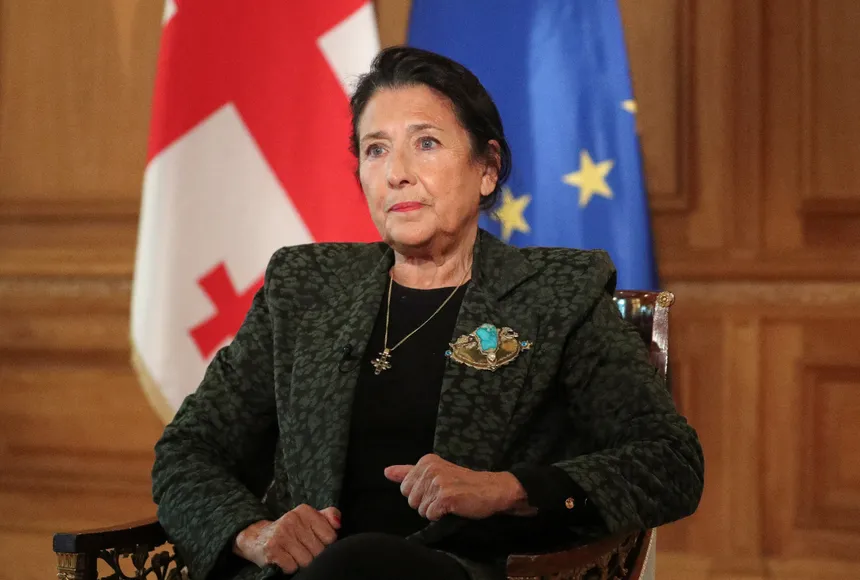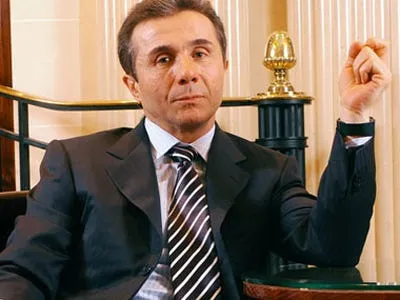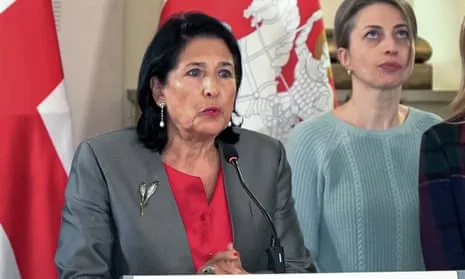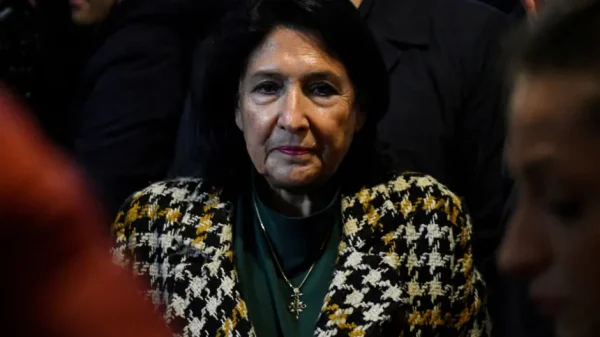Georgians have cast their ballots in a highly anticipated parliamentary election, seen by many as a critical vote on the country’s chances of joining the European Union. The election has been marked by a bitter campaign dominated by foreign policy issues, with allegations of a smear campaign and claims of intimidation by the ruling party, Georgian Dream. The opposition parties have accused the ruling party of carrying out a “hybrid war” against its citizens, while the government has vowed to take strong action against opponents they deem responsible for “war crimes”.
The election is seen as a make-or-break moment for Georgia’s potential membership in the EU, with polls suggesting that a majority of Georgians support the country’s bid to join the bloc. However, the EU itself has put Georgia’s membership bid on hold indefinitely after the ruling party passed a law-cracking down on freedom of speech in June. Many Georgians fear that the party is dragging the country towards authoritarianism and killing off hopes of EU membership.
The pre-election campaign has been marked by allegations of vote rigging and intimidation, with a video circulating on social media showing a man stuffing ballots into a box at a polling station. In response, Georgia’s interior ministry launched an investigation and the central election commission declared all results from the polling station invalid.

Salome Zourabichvili (Image via Getty)
The election is also seen as a test of Georgia’s commitment to democratic values, with many calling it an “existential election” that will determine the country’s future course. The Georgian president, Salome Zourabichvili, has called the election a crucial moment for the country, saying that it will determine whether Georgia gets back on track to EU membership or falls into Russia’s orbit.
With 150 lawmakers set to be elected, the outcome of the election is far from certain. The ruling Georgian Dream party is expected to face stiff competition from three opposition coalitions, including the Unity National Movement, the Coalition for Changes Lelo, and Strong Georgia. The Gakharia for Georgia party, set up by former prime minister Giorgi Gakharia, has also entered the fray, saying it will not form an alliance with any other party but will support the opposition to form a government.
The election has significant implications for Georgia’s future, with many Georgians fearing that a win by the ruling party could lead to authoritarian rule and a drift away from the EU. As such, the outcome of the election is being closely watched by observers and analysts, with many hoping that the country will choose a path towards democracy and EU membership.

























